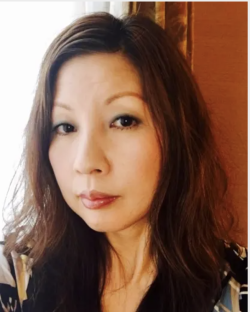Fall 2025
Year 2025
Spring 2026
Application Deadline
Feb 1, 2025 2 Months
2 Weeks
3 Days

Keio University, located in downtown Tokyo, is one of Japan's oldest and most prestigious academic institutions. Each academic year it hosts one or two Dartmouth students in either their Japanese Language Program (JLP) or their Keio International Program (KIP), which is comprised of courses taught in English.
The application process for this program is competitive, every year about 3 students are selected for this program. Students first apply through the Guarini Institute by the February 1st application deadline. After February 1st, faculty from the Department of Asian Societies, Cultures, and Languages will review applications and make acceptance decisions. Students will be notified of their acceptance decisions on March 1st.
Successful applicants who are accepted and commit to the program will receive a nomination from the Guarini Institute. Applying for an exchange program involves two steps: if you receive a nomination from the Guarini Institute you will also need to complete the host institution's application, which is administered and reviewed by the host institution. The host institution makes the final acceptance decision. The Guarini Institute will provide further instructions on this second step to students after they are accepted and commit to a program.
For more information about applying for this program, see our webpage on How to Apply & our FAQs under section 2 (How to Apply: Application), or contact the Guarini Institute.
 Sachi Schmidt-Hori Associate Professor of Japanese Literature and Culture
Sachi Schmidt-Hori Associate Professor of Japanese Literature and Culture Participants on this exchange enroll as full time students and choose from available courses they are qualified for at Keio in either the Japanese Language Program (JLP) or Keio International Program (KIP). Students can transfer back courses to count toward their Dartmouth diploma.
N/A
Students participating in the exchange generally receive nine transfer credits for a full academic year or four transfer credits for a single semester. Please be advised: exchange credit requires prior approval from the Dartmouth academic department/program and the Registrar.
Selected students would attend Keio according to one of the three following enrollment patterns:
1) full academic year (approx. 10 Sept to late July of the following year; winter holiday is approx. 20 Dec to 4 Jan; spring vacation is approx 20 Jan to 5 April)
2) fall term only (approx. 10 Sept to 20 Jan; note that this would preclude enrollment at Dartmouth for the winter quarter)
3) spring term only (appox. 5 April to late July; note that this would preclude attendance at Dartmouth for the summer quarter).
Upon completion of the exchange, the exchange coordinator at the host institution will forward the transcript to the Office of the Registrar, Dartmouth College. Future transcripts of exchange program grades must be obtained by the student from the exchange institution.
Housing is provided in either a dormitory or shared, self-serviced apartment. Some of the dorms are catered, and some of the dorms are self-serviced, meaning that students prepare their own meals in shared kitchens, though students can also make use of the many cafes and cafeterias on and near Keio's campus. More information on housing can be found on the accomodations website.
Students will have access to support services and facilties while at Keio. More information on student life at Keio can be found on Keio's website.
In addition to the obvious educational benefits, the exchange offers unique financial advantages.
Dartmouth students studying at Keio for a full year are eligible for Keio's support in applying for the Japanese Ministry of Education and Science Scholarship (MEXT) This is a generous scholarship: This Japanese government scholarship supports foreign students who study in higher education institutions, selected on the recommendation of Japanese Embassy/Consulate General, University, or Authority. Click for more information: MEXT Scholarship
The Japan Student Service Organization (JASSO) Student Exchange Support Program for Short Term Study in Japan (JASSO Scholarship) is available to qualified students who have been admitted to a Japanese college or university for a period of up to one year of study in Japan under a student exchange agreement with a Japanese college or university. The scholarship program is intended to encourage student exchange between universities in Japan and their overseas partner institutions, and to promote understanding and friendship between the participating countries. The scholarship award is a monthly stipend of 80,000 yen per month. Click for more information: JASSO
Dartmouth students participating on the exchange for one term are expected to pay 1/2 regular tuition to Dartmouth. Dartmouth students participating on the exchange for a full academic year pay Dartmouth 1/2 tuition for the fall and winter terms and are not billed tuition for the Dartmouth spring term. Students will still pay "Other Fees" for each Dartmouth term they are on exchange. Room and board charges, and other program expenses are paid by the student directly to Keio, and these costs may be offset by scholarship support offered by Keio University should the Dartmouth student receive such support.
Because the exchange is an official program sponsored by the College, Dartmouth students do not need to pay the transfer term fee that the College charges to students who study on outside programs during leave terms.
In order that all qualified Dartmouth undergraduate students may have the opportunity to take part in off-campus programs, the College endeavors to adjust its normal financial aid awards for students already receiving aid. Tuition and expected family contribution for Dartmouth's off-campus programs are the same as for an on-campus term.
All costs, including airfare and spending money, are considered when determining the cost of an off-campus program. Any costs in excess of a typical term in Hanover are met with additional Dartmouth Scholarship Funds. If you have a work expectation for the term, this will be replaced by scholarship funding.
Students are responsible for purchasing their own plane ticket and, in many cases, meals. Often this means that part of the expected family contribution is used towards these costs rather than for tuition. For help sorting out who pays what and how, contacting the Financial Aid office is often advisable.
Financing your program | Financial Aid | Scholarships | Budgeting & Costs
 Hope Rennie Program Administrator
Hope Rennie Program Administrator